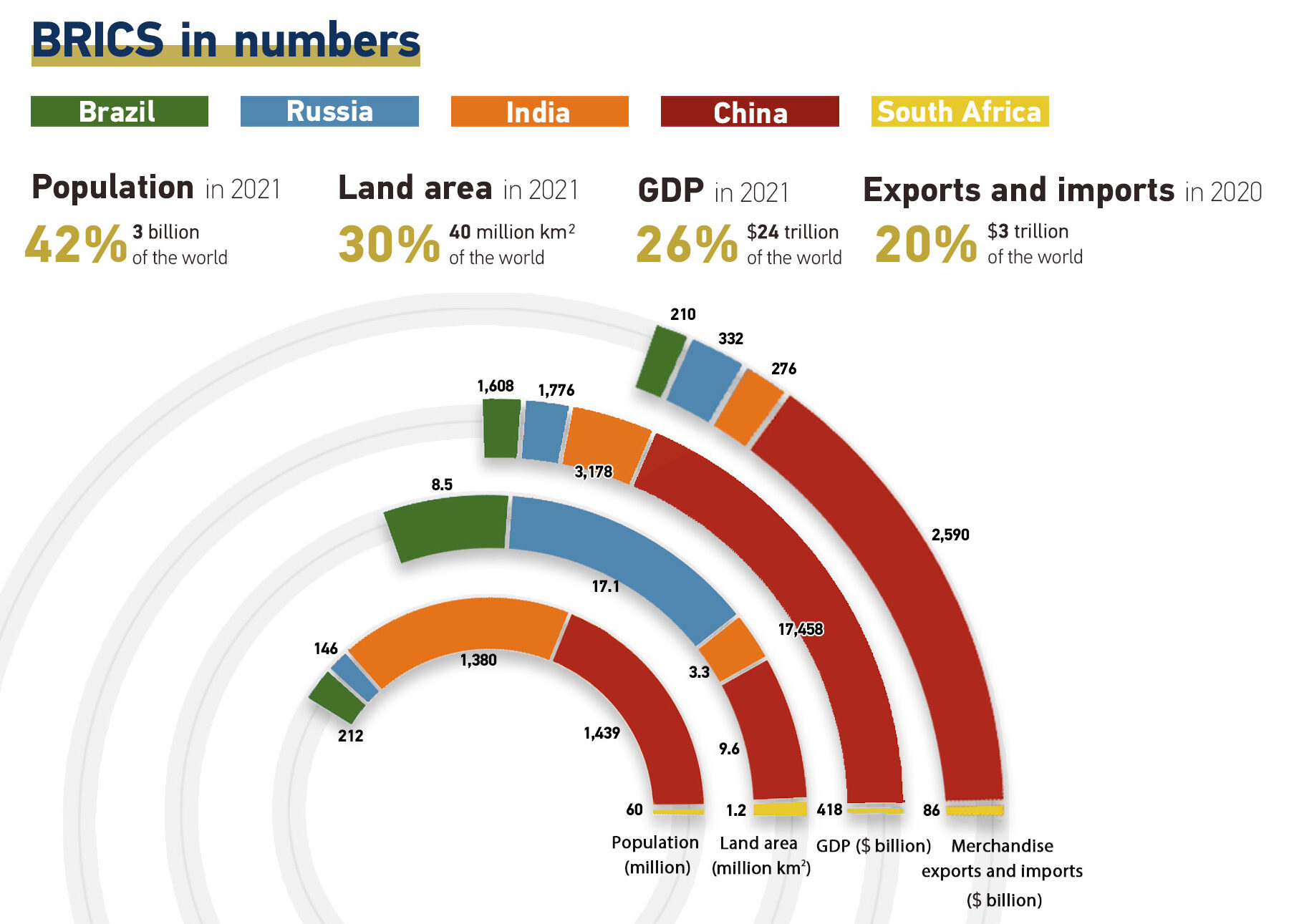BRICS is an acronym that stands for Brazil, Russia, India, China, and South Africa. These five countries, comprising about 42% of the world’s population, formed an alliance in 2009 (expansion of BRIC, formed in 2006) to promote cooperation and collaboration among their economies. Over the years, the alliance has expanded to include a wide range of areas, such as infrastructure development, technology cooperation, and energy security. The BRICS alliance has also become a political force, challenging the existing world order dominated by the West.
The West should pay attention to the BRICS alliance for several reasons.
First, BRICS countries are significant players in the global economy, with a combined GDP of over $16 trillion. Their economic growth has been outpacing that of the developed world, and they are projected to continue to do so in the coming decades. The BRICS alliance presents a challenge to the traditional Western-dominated economic order and may eventually shift the balance of power in the global economy.
Second, BRICS countries are also important geopolitical players, with significant military capabilities and influence in their respective regions. China, in particular, has emerged as a major global power, challenging the United States’ dominance in the Asia-Pacific region. Russia has also become more assertive on the world stage, with its interventions in Ukraine and Syria.

Third, the BRICS group is seeking to establish a new world order that is more equitable and inclusive, which could have significant implications for the West.
Fourth, the BRICS group is challenging the dominance of the Western financial institutions, such as the International Monetary Fund (IMF) and the World Bank, by creating its own institutions, such as the New Development Bank (NDB) – formerly BRICS Development Bank.
Finally, BRICS countries have a shared interest in promoting a multi-polar world order, with greater representation and power-sharing among different regions and countries. This vision of global governance challenges the Western-dominated world order and may lead to increased competition and tensions between the West and BRICS countries.
The BRICS alliance presents both opportunities and challenges for the West. While it offers the potential for increased economic and diplomatic cooperation, it also challenges the traditional Western-dominated global order and may lead to increased competition and tensions between the two groups. We are witnessing these tensions today with the Russia/Ukraine war.
First dropped: | Last modified: February 24, 2023
Error: Invalid modelName in client config.
